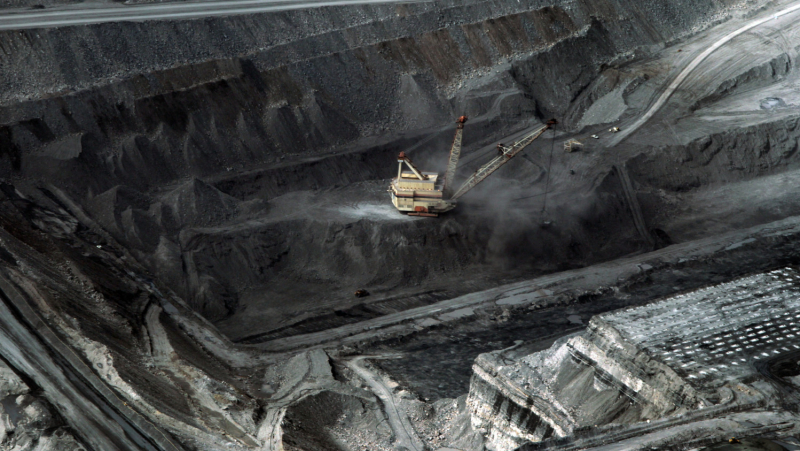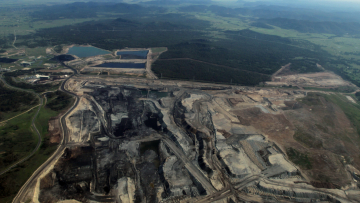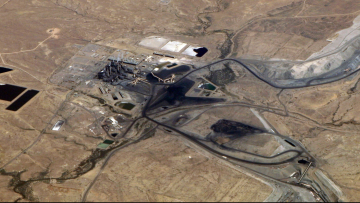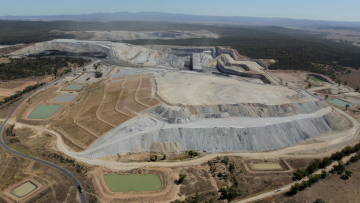Met coal: financial institutions’ missing policies
Cynthia Rocamora, Industry Campaigner at Reclaim Finance, cynthia@reclaimfinance.org

Cynthia Rocamora, Industry Campaigner at Reclaim Finance, cynthia@reclaimfinance.org
Financial institutions are still financing the production of highly polluting metallurgical coal, used in steel manufacturing, rather than prioritising lower-emission alternatives. With coal phase-outs a key topic at COP28 in Dubai, Reclaim Finance’s new report highlights financial institutions’ failure to commit to the necessary action on met coal, even though they have made commitments on thermal coal, used for heat and electricity (1). Since 2016, the world’s biggest banks have provided US$ 557 billion in finance to the 50 biggest developers in the metallurgical sector. For their part, investors have invested over US$ 163 billion in these companies. Reclaim Finance calls on financial institutions to urgently adopt policies on metallurgical coal.
The use of metallurgical coal for steelmaking makes it the biggest industrial emitter of CO2 globally, responsible for 11% of global emissions (2) – far more than aviation’s 2.1% (3). Steel is essential for manufacturing cars and many household appliances, but also for wind turbines and other renewable energy infrastructure.
According to the International Energy Agency, production from existing mines is sufficient to meet demand for steel production (4). Yet there are currently plans for 138 projects for new mines or extensions of existing mines to produce metallurgical coal globally (5) and new analysis for Reclaim Finance reveals that the world’s major banks and investors are continuing to finance companies developing new metallurgical coal projects (6). These include Anglo-Swiss company Glencore, which has just bought 77% of the metallurgical coal activities of Canadian group Teck Resources (7), BHP Mitsubishi Alliance and Whitehaven Coal.
Between January 2016 and June 2023, banks provided more than US$ 557 billion to the 50 companies developing the most metallurgical coal. These include Japanese bank Mitsubishi UFJ Financial, US banks Citigroup and Bank of America, the UK banks HSBC and Barclays and French banks BNP Paribas and Crédit Agricole.
A ranking of the banks that have given the most support to the 50 largest companies in the sector between January 2016 and June 2023 – excluding Chinese companies finds:
- Mitsubishi UFJ Financial is the biggest source of finance, providing US$ 21 billion
- Barclays is the biggest UK source of finance, providing US$ 5.2 billion
- BNP Paribas is the biggest source of French finance and 11th globally, providing US$ 4.5 billion (8).
For their part, as of June 2023 investors have invested US$ 163 billion in the 50 largest companies developing new metallurgical coal projects. American firms BlackRock and Vanguard lead the way (excluding investments in Chinese companies), with Deutsche Bank the biggest European investor with US$ 1.3 billion invested.
"The solutions to decarbonize steel exist, and the transition to new technologies is underway. And yet, financial players continue to add fuel to the climate fire, by financially supporting the development of new mines. This is a threat to the economy as these new mines risk becoming stranded assets, and it is a disaster for the climate. Financial players must urgently adopt policies to stop the expansion of metallurgical coal," Cynthia Rocamora, Industry Campaigner at Reclaim Finance.
Using metallurgical coal to manufacture steel is disastrous for the climate, emitting 2.3 tonnes of CO2 for every tonne of liquid steel. It is time to shift away from coal-based steel production and investors need to support that shift. Investments in new coal-fired steel plants risk becoming stranded assets," Caroline Ashley, director of SteelWatch.
While a growing number of banks have adopted a policy of excluding thermal coal, almost none apply the same restrictions to metallurgical coal (9) with just five of the 50 banks analyzed – Société Générale, HSBC, Westpac, Caixa Bank and BNP Paribas – adopting any form of commitment against financing metallurgical coal mining projects (10). But these policies do not prevent these banks from supporting the expansion of the sector, because they only target projects and corporate financing is still permitted (11).
The policy gap is even greater on the investor side where no investors have adopted exclusionary measures for metallurgical coal. Only 20% of investors have taken measures on thermal coal.
Reclaim Finance is calling on financial institutions to stop financing new metallurgical coal projects, and to stop supporting the companies developing these new projects.
Notes:
- Reclaim Finance, Metallurgical coal financing: time to call it off, November 2023.
- Global Efficiency Intelligence, Steel Climate Impact: An International Benchmarking of Energy and CO2 Intensities, April 2022.
- Climate Action Network (CAN) and International Coalition for Sustainable Aviation (ICSA), Contribution of the global aviation sector to achieving Paris Agreement climate objectives.
- IEA, Net Zero by 2050, October 2021.
- Global Energy Monitor, Global Coal Mine Tracker, April 2023. Together these projects represent a planned production capacity of 406 Mtpa.
- This report analyses the financial support given to the 50 largest companies developing new metallurgical coal projects, ranked by production capacity on the basis of Global Energy Monitor’s Global Coal Mine Tracker.
- Bloomberg, Glencore Wins Teck Coal Unit, Paving Way for Its Own Split, November 2023.
- BNP Paribas coordinated, alongside Barclays, Santander and Bank of America, the issue of a US$ 1 billion bond by BHP in 2023.
- See the Coal Policy Tracker for banks and investors with met coal policies.
- BNP Paribas informed Reclaim Finance of a new policy on 22 November 2023.
- HSBC coordinated the issue of a US$ 1 billion bond for Glencore in May 2023.
This press release was originally published on Reclaim Finance's website here.




